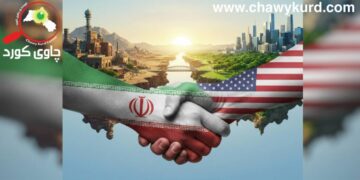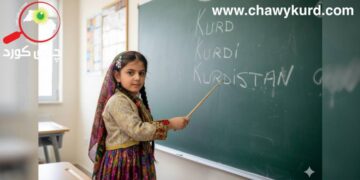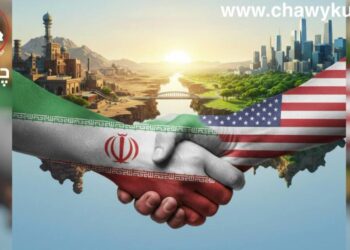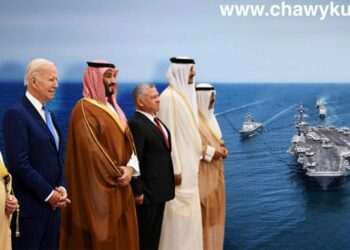“From Sykes-Picot to Tom Barack”
For more than a century, the Kurdish—more than 60 million people divided into five countries—have been treated the worst in statelessness as a result of Western and Eastern colonialism. While the Western powers have changed their public discourse and attitude towards the Kurds, their attitude remains relatively the same. That is, their actions towards the Kurdish issue are largely anchored in a stable and rotating historical map; they favor central governments over the largest stateless nation in the region. Despite promises, betrayals and temporary alliances, the West’s approach to the Kurds has long been shaped by convenience and temporary comradeship—not moral and just comradeship.
“Tony Blair; New Orientalism”
As for Tony Blair, he has consistently expressed his support for Kurdish autonomy, especially in the context of post-2003 Iraq. Amid the wider turmoil in Iraq, he has praised the Kurdistan Region as a model of good governance and economic growth since the fall of Saddam Hussein. In 2014, with the rise of ISIS, Blair significantly called for stronger international support for the Kurdish Peshmerga, recognizing their leading role in fighting extremism and defending their autonomy. Again, this is in the form of protecting the “other Iraq”, at least giving them a little hope or excuse to say that Iraq is not all a black story, that the “north” is stable (if the militias, drones and missiles stop). Blair also cited Kurdish suffering—especially the Anfal genocide—as a major part of his moral justification for the 2003 invasion of Iraq, as did Paul Bremer. When Bremer saw the graves of the countless victims of the countless massacres in Kurdistan, he pointed out in his book how comfortably he slept when they removed Saddam. In his speeches and memoir, A Journey (2010), Blair cited Saddam Hussein’s atrocities against the Kurds as evidence of the regime’s brutality and the need for change. But critics say this attention to Kurdish victims has served primarily to justify Britain’s interventionist policies and its own hegemonic interests or geopolitical consequences.
Brett McGough and the independence referendum; Lawrence II”
In 2017, the Kurdish people in Iraq held a peaceful independence referendum in which 93% voted for independence. What was the world’s response? Silence, or worse—condemnation. The snake’s head was Brett McGough, then the US president’s special envoy to the global coalition against ISIS and the heir to the Barack Obama administration and the Democrats. McGough was a reporter and envoy of the United States and Kurdistan. He lived in Baghdad and was based in the deep US state, which is more of a continuation of traditional orientalism. Like Tom Barak, the US envoy to Syria, he knew the maps only after the events of 1914. Despite the Kurds’ key role in defeating ISIS on the ground, McGough opposed the referendum, calling it “destabilizing” at a bad time.
The United States has always been seen by the Kurds as a guarantor of Iraq’s stability against other foreign and regional hegemony, not as a deep-rooted dependency. In his book, Bremer points out that the Kurds were as afraid of religious clerics as the previous regime and considered the survival of the Peshmerga as the reason for the survival and continuity of the Kurdish struggle; From the Kurdish mouth, of course.
The United States, which controlled Iraqi airspace as it does now, was at its worst and weakest level of intervention or hegemony. It is completely ignorant and unprofessional not to blame McGough for bad or deliberate messaging in favor of Baghdad. In McGough’s view, Baghdad was strong, central power, and US foreign policy was to defend that center. So while Baghdad imposed sanctions on the Kurdistan Region, including flight bans, budget cuts and salary cuts, the United States was just a spectator.
Thomas Barak and Orientalism; Arab expansionism and a return to the first square”
In 2025, US Special Envoy to Syria Thomas Barak (US Ambassador to Turkey) declared, “We will not make that mistake again,” referring to the legacy of Sykes-Picot, continuing the trend. This time Barak is under two or three influences; the first effect of Trump’s love for Turkish President Recep Tayyip Erdogan and Turkey in orientalism, the unique country of Western thought.
“More than a century of marginalization”
From Lawrence’s misleading promises to Bremer’s centrism, McGough’s opposition to Kurdish fate and Barak’s comprehensive vision of regional stability show that Western policy has followed an unchanging pattern. Kurdish aspirations are again at a distance in a global era where the stability of artificial states prevails over genuine national justice. The largest stateless nation in the world is divided both by the so-called “brother” countries and by international partners, who continue to marginalize the Kurds or treat them as temporary agents during war rather than equal partners. The crucial question is whether the Kurds have really perfected their national lobbying in the West. Have the Kurds been able to be a good professional messenger? Have the Kurds been able to unite their messages in the regions, especially in the west and south, and deal cautiously with the “sleeping” West and the “oppressive” East? This is despite the fact that the West is dealing with the Western colonial orientalist tradition and the East is still dealing with the rhetoric and discourse of an oppressive masculine “brotherhood”, both of which think and decide on behalf of the Kurds.





























































